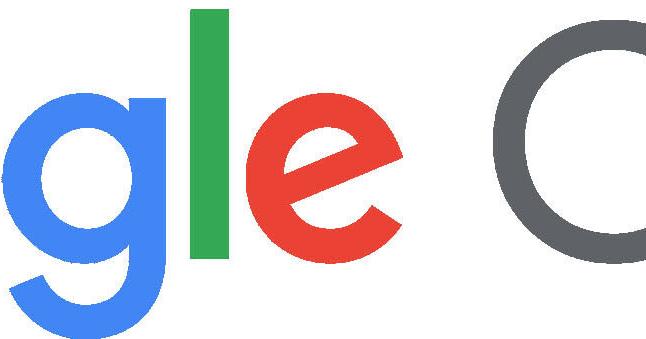By Bloomberg Philanthrop,Bruce Y. Lee,Senior Contributor
Copyright forbes

The new Vision Initiative, funded by Bloomberg Philanthropies, will help extend Warby Parker’s Pupils Project, which includes providing vision screenings and eyeglasses to young students. (Photo: Courtesy of Warby Parker)
Courtesy of Warby Parker
You could say that the eyes have it, that having decent vision is super important for learning and productivity. But many people may have no “eye-dea” that an estimated one billion people around the world aren’t getting proper vision care. Not being able to see how many people can’t really see has led to a shortage of corrective action, so to speak. All of this may change, though, with Michael R. Bloomberg’s opener at the 2025 Bloomberg Philanthropies Global Forum this past Wednesday in New York City.
Bloomberg Announces $75 Million Vision Initiative
Bloomberg, who founded both Bloomberg L.P. and Bloomberg Philanthropies, kicked off the forum with a major announcement: Bloomberg Philanthropies is investing $75 million over the next two years into a new global Vision Initiative. The initiative includes NYC-based eyeglass company Warby Parker as a lead partner along with a variety of other partners such as VisionSpring, RestoringVision and Vision to Learn. You could say that there’s quite a lot of vision behind this initiative in more ways than one.
The goal of the initiative is to improve vision care around the world. This will consist of providing more vision screenings, corrective lenses like eyeglasses and contact lenses and cataract surgeries as well as improving the data available to make proper vision-related decisions. Bloomberg called poor vision “an enormous obstacle to success in school and careers” and said that “in most cases, it can be easily fixed.” He described fixing vision as a way for ”more people to fulfill their potential.” He even concluded the announcement at the Forum with a pair of eyeglass puns, saying, “The world is full of opportunities to make a difference and sometimes they’re hiding in plain sight. Today, we’re bringing more of them into focus.” And we all know how much can be done with puns.
Michael R. Bloomberg announced the launch of the Vision INitiative at the Bloomberg Philanthropies Global Forum 2025 at The Plaza Hotel on September 24, 2025 in New York City. (Photo: Bloomberg IP Holdings LLC)
Bloomberg IP Holdings LLC
Bloomberg Vision Initiative Will Conduct Vision Screenings For 11.5 Million People
One challenge with addressing vision problems is that you can’t see what you don’t see. Many people may not even be aware that their vision is not what it could be because they don’t go through routine vision testing. As Kelly Henning, MD, who is the Public Health Program Lead for Bloomberg Philanthropies explained, “There was a time when school children were all screened routinely for visual acuity, but that’s not true at this point.” Henning pointed to funding cuts and changes in educational priorities as reasons for screening to have been essentially screened out of many schools. As a result, many kids can keep struggling way into adulthood with not seeing things clearly, not even envisioning what may be correctable and possible.
MORE FOR YOU
“They just think that’s the world,” explained Neil Blumenthal, co-founder and co-CEO of Warby Parker. “Whereas once you provide vision screening, an eye exam and throw on glasses, right there eyes light up, a smile erupts ear to ear. It’s literally a miracle, magic.” With the glasses now on the nose, “The child knows, from that point on, ‘Oh, this is how the world’s supposed to look like,’” said Blumenthal. That’s why a big part of this Vision Initiative will be Warby Parker, Sightsavers, VisionSpring, RestoringVision, Vision to Learn and the Fred Hollows Foundation working together to conduct vision screenings for around 11.5 million people in countries like the U.S., Bangladesh, Cambodia, Ethiopia, Kenya and Nigeria.
Bloomberg Vision Initiative Will Distribute Nearly Seven Million Pairs Of Eyeglasses
This Vision Initiative will also be quite a spectacle or many spectacles in fact. It will be distributing nearly seven million pairs of eyeglasses domestically and abroad. Warby Parker will be central to this effort, which is fitting since Blumenthal has been eying improving access to eyeglasses for years. Not too long after Blumenthal graduated from Tufts University in 2002, he met Jordan Kassalow, OD, whom Blumenthal described as “a very dynamic eye doctor, who has an optometric practice here in Manhattan. He was in the process of starting this new nonprofit that would train low-income women to start their own businesses giving vision screens and selling glasses. And he was the one who told me that a billion people on the planet don’t have access to glasses.” This motivated Blumenthal to work for VisionSpring, the non-profit started by Kassalow in 2001, and move down to El Salvador to work on the pilot program, which entailed “living out of an eye clinic,” in Blumenthal’s words.
Fast forward five years to when Blumenthal was attending the MBA program at Wharton School at the University of Pennsylvania. There he and classmates Andrew Hunt, David Gilboa and Jeffrey Raider were commiserating about how expensive eyeglasses were in the U.S. “Dave had just lost a pair of $800 glasses in the seat pocket of an airplane right before starting school,” Blumenthal recalled. “He had to buy a cell phone, and he bought an iPhone, and the iPhone was cheaper than the glasses.” This eye carumba situation prompted them to wonder why weren’t glasses being sold online? That way the middle people could be cut out and glasses could be sold at lower prices to consumers. That led to their founding Warby Parker, which did exactly that.
Throughout helping grow Warby Parker into the $3.37 billion market cap publicly-traded company that it is today, Blumenthal never lost the VisionSpring in his step, so to speak. “Warby Parker has always been committed to vision for all, and we think about that figuratively and literally,” he said. “Literally, how do we provide the tools for people to see and figuratively, how do we serve as an example of business that does well and does good. So from Day One, we always provided a pair of glasses for every pair that we sell,” which has been dubbed Warby Parker’s “Buy a Pair, Give a Pair” program and has already distributed over 20 million pairs of glasses to people in need in more than 80 countries..
Well, the Vision Initiative will help grow this Pair program in low- and middle-income countries. It will also help Warby Parker expand its U.S.-based “Pupils Project,” which has already been providing free vision screenings and more than 300,000 pairs of eyeglasses to American schoolchildren in places like Baltimore, MD, Boston, MA, Newark, NJ and Washington, DC. Blumenthal emphasized how cost-effective these programs given the comparatively inexpensive intervention of eyeglasses and the extensive return of investment that could result.
As Henning related, “The International Agency for the Prevention of Blindness does a lot of research in this space. They have found in their studies that children who receive eyeglasses at age five, who need them and receive them, and wear them through age 18, can earn up to 78% more in their lifetime, so there is actually economic benefit, there’s obviously a learning benefit.” She continued by saying, “The Lancet Global Health actually published a study showing that tea workers in India, who received glasses, this is more for close work, so reading glasses, increases their daily harvest by more than 20%, and significantly increased their earnings.”
Bloomberg Vision Initiative Will Aim To Give 250,000 People Cataract Surgeries
Another thing that can cloud the whole vision situation is cataracts. As you age, the proteins, known as crystallins, in the lenses of your eyes can break down, forming cloudy patches known as cataracts. As these cloudy patches grow larger and more prominent, it can get increasingly difficult for one to see. The World Health Organization has estimated that around 17% of people globally have their vision impaired by cataracts. The prevalence of people who have or have had cataracts does differ from country to country but in the U.S., it’s close to 20% of everyone from 65 to 74 years age and over 50% of those 80 years of age and older, according to the Cleveland Clinic.
Fortunately, there is treatment available for cataracts. It’s cataract surgery, which entails removing your clouded original lenses and replacing them with artificial intraocular lenses or IOLs. The trouble is many people may not be aware of such a treatment option or have access to qualified ophthalmologists who can do such surgeries. That’s why this Vision Initiative includes Aravind Eye Care System, Orbis and the Fred Hollows Foundation working to help provide around 250,000 people around the world cataract surgeries.
Of course, cataract surgery isn’t something you can DIY after watching some kind of TikTok video. It takes the proper qualifications, training, skills and experience. “[The partners in the Vision Initiative] have referrals to local eye hospitals that can provide assistance, and then we simultaneously will be working with groups on the infrastructure and the training needed to get this cataract surgery program going more broadly,” Henning explained. “So the cataract surgery piece may be slightly longer, lead time because of the training and the infrastructure needs, but we’re hoping to get all of this going very quickly.”
Bloomberg Vision Initiative Will Improve The Availability Of Sight-Related Data
Finally, there’s the issue of data. You could say that there is not as much data on sight as one would like to make decisions. Decision-making in health and public decision making should be based be based on actual hard data, rather than, you know, whatever someone with influence happens to want, feel and say at a given time. Otherwise, the decisions will end up being wrong, wrong like a suit or dress made to look like King Kong.
Blumenthal has described Bloomberg Philanthropies as “a data-driven organization” and whenever I’ve talked to Henning about a Bloomberg Philanthropies initiative, data always seems to front and center. Therefore, it shouldn’t be super surprising that the Vision Initiative is making collecting and analyzing more data on vision a priority. The International Agency for the Prevention of Blindness, Johns Hopkins Bloomberg School of Public Health, Johns Hopkins Wilmer Eye Institute, Institute for Health Metrics and Evaluation, and the World Health Organization will be working together on this piece of the initiative.
It doesn’t take perfect vision to clearly see how improving people’s visions around the world can increase what can be done and accomplished. Multiple surveys have shown that of the five senses, people would fear and miss losing sight the most. Therefore, this new Bloomberg Vision Initiative does make whole lot of sense—pun intended—and will likely return a whole lot of dollars and cents for the world.
Editorial StandardsReprints & Permissions



